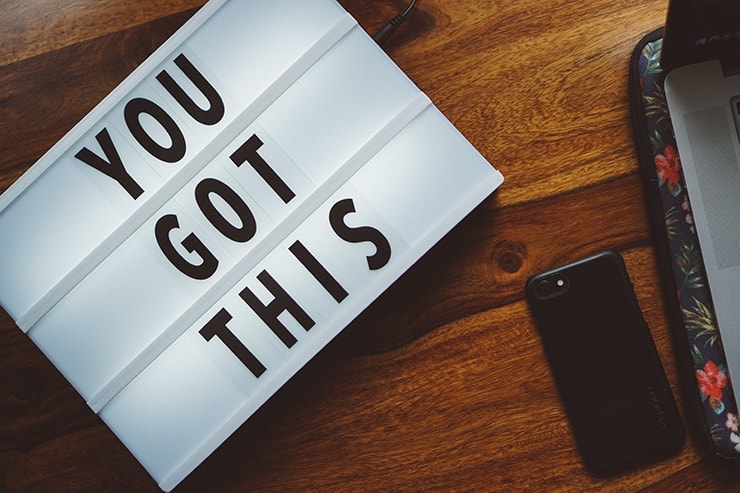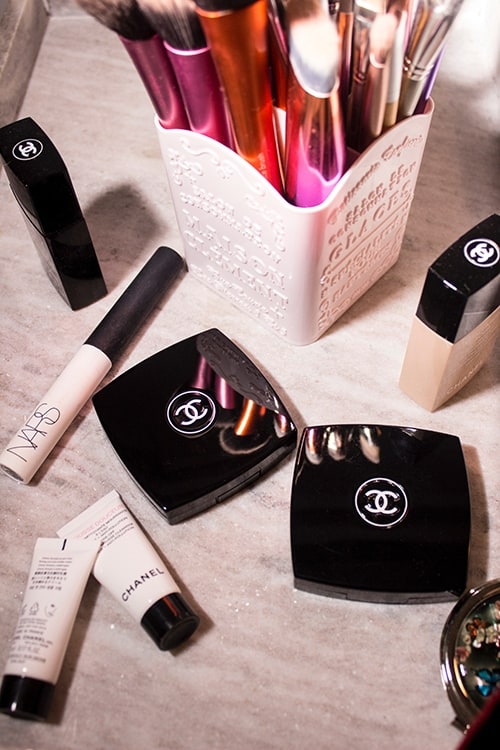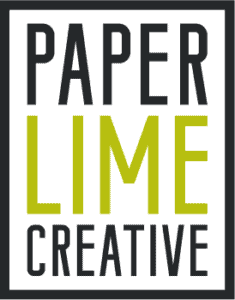We often get asked if someone should create a personal brand or a corporate brand. There is no one-size-fits-all answer, but rather, it’s a dive into each individual business and taking a look at the long-term goals and the best brand strategies to put in place.
First, let’s chat a bit about the difference between a business or corporate branding and personal brand.
Personal brands

Personal brands are selling themselves as the product. Whether that is your lifestyle, the idea of you, or some sort of intellectual property that you came up with. There are tons of famous examples to take a look at.
The Kardashians are selling themselves and the idea/lifestyle of being a wealthy Kardashian. Their reality show is really what propelled them into the public eye. I actually had to Google why the Kardashians are famous, and why they have some much money. Robert Kardashian was one of the lawyers that were on the OJ Simpson team at his trial. The OJ Simpson trial was in 1995, so definitely before the time of people who like to watch Keeping Up With the Kardashians, which was their pop culture rise to fame.
The Kardashian/Jenner empire has had a huge effect on society and beauty standards. Their look has made plastic surgery and countering popular, long before they got into the cosmetic game and started producing their own products.
Another popular example of a personal brand is Tony Robbins. He sells his coaching methods and training system that he has developed over the decades. Adding his name to his coaching has added value both to him and his coaching program. It’s cyclical — people re intrigued because it’s put out by Tony Robbins. Because it works, people are more interested in Tony Robbins. Because people are more interested in Tony Robbins, they look to his coaching system. It has built up to a point where associating with the name Tony Robbins creates a standard for your business.

Corporate brands
Branding as a business looks a bit different. There are also a lot of successful examples! In business branding, it means the CEO or board of directors is less visible in most cases. There are also reasons to do this for longevity. Coca-Cola has been around for more than 100 years and I don’t know if anyone can name the CEO of the company. At the end of the day, it doesn’t really matter because everyone is invested in the product that is Coca-Cola (and other beverages the company sells).
This allows for more privacy for those operating and makes succession planning easier because it isn’t centred around one person.
Of course, there are business brands where we do know the CEO, Amazon, Tesla, Apple, and Microsoft to name a few, though part of this is because of their high net worth. Regardless of an individual’s fame, it is easier to switch CEOs because the CEO is not the brand, unlike in a Tony Robbins example. While losing Steve Jobs at such young age was sad, it was an easier transition to Tim Cook. What happens to Apple without Steve Jobs? Is it an easier question to answer than what happens to Tony Robbins without Tony Robbins?
Having a business brand set up also helps protect the company from any CEO indiscretions as well. Jeff Bezos has got a lot of flack for his obscene amounts of money and poor working conditions, but people are able to celebrate that and still order from Amazon. Firing a CEO can happen and replacements found, and it’s easier to do that when the CEO isn’t the namesake of the company. In contrast, Rachel Hollis can’t escape her scandals because she is her brand, and anything that affects her directly affects her business.
What’s right for you?
How do you know what is the best setup for you? There are a couple of things to think about in the long term. Do you want to sell your business, or just close up shop? While your business might seem small or not worth a lot now, in 5, 10, or 15 years your client list could be worth a lot. Selling your business to a new owner can be lucrative. If it’s your personal name it’s much harder to sell a company.
Do you want to work alone or with a team? You can absolutely still have a personal brand and have a team, but think bout how your company is set up and how that may affect morale. We know it’s the Tony Robbins show and people are excited to be working for Tony Robbins. If you’re in plumbing, are employees as excited to be working for the John Smith show in their local area? When John Smith is in the office and they’re doing all the fieldwork? This might not be the best approach.
As a business owner what are your personal long-term goals? Do you want to write a book, start public speaking, or do television interviews? If yes, it would make more sense to start adding value to your name. Do you want to be a hands-off boss that takes lots of vacations and your managers deal with the day-to-day, then it’s probably better to do a business brand.
Ready to start your branding journey?
We are happy to advise on whether you should brand personal or brand your business (or sometimes both!) These questions are a great starting point to reflect on your goals and mission, and the type of work environment you want to retake. Have a question? Don’t hesitate to contact us!
